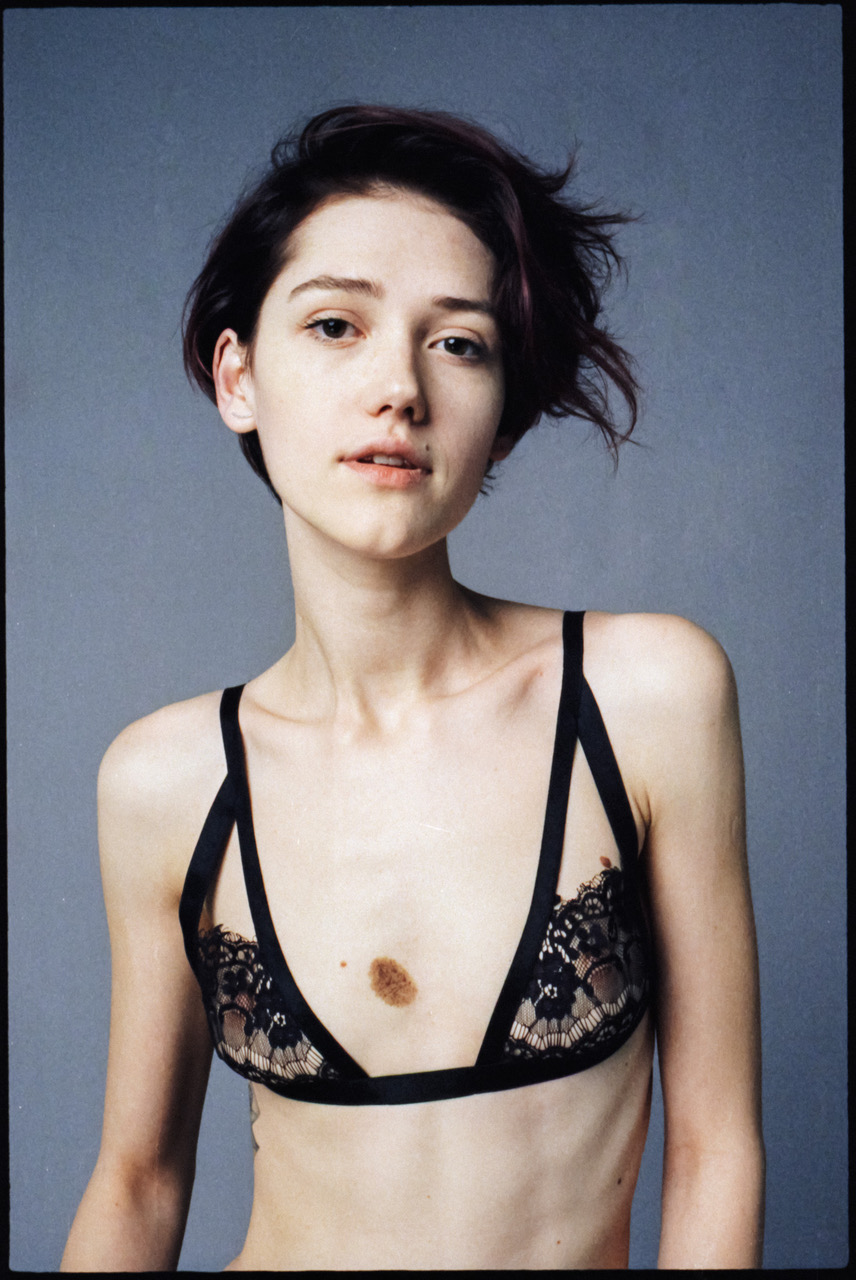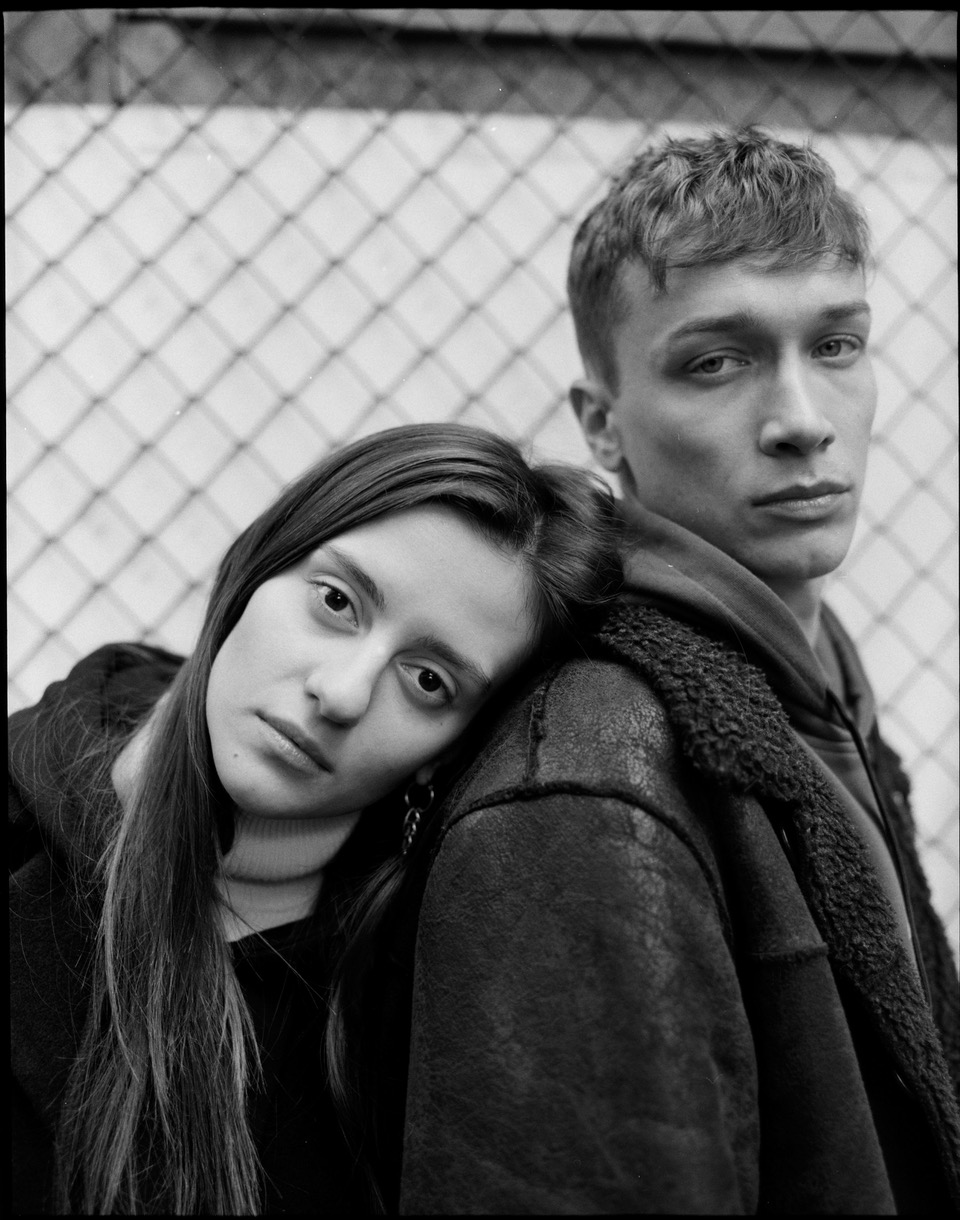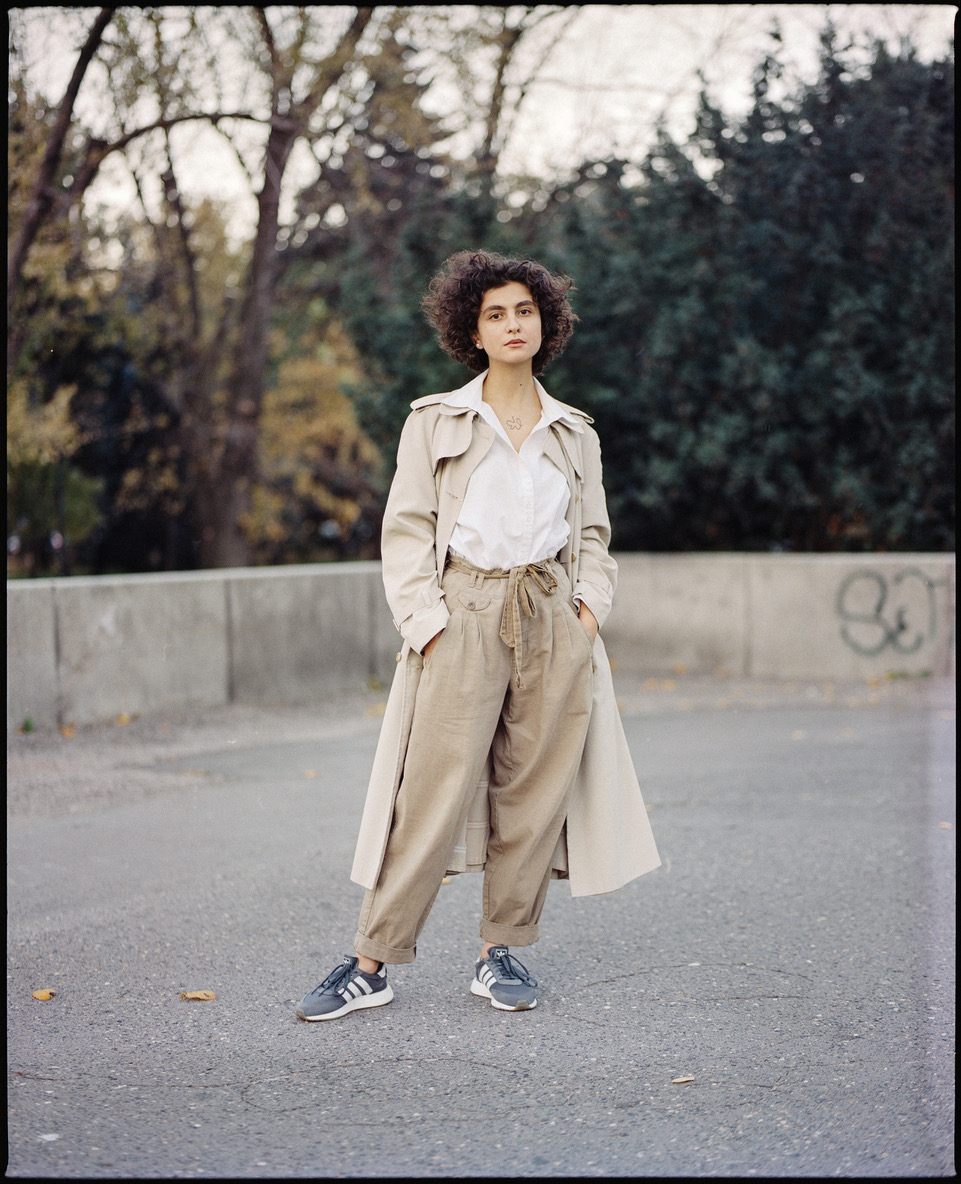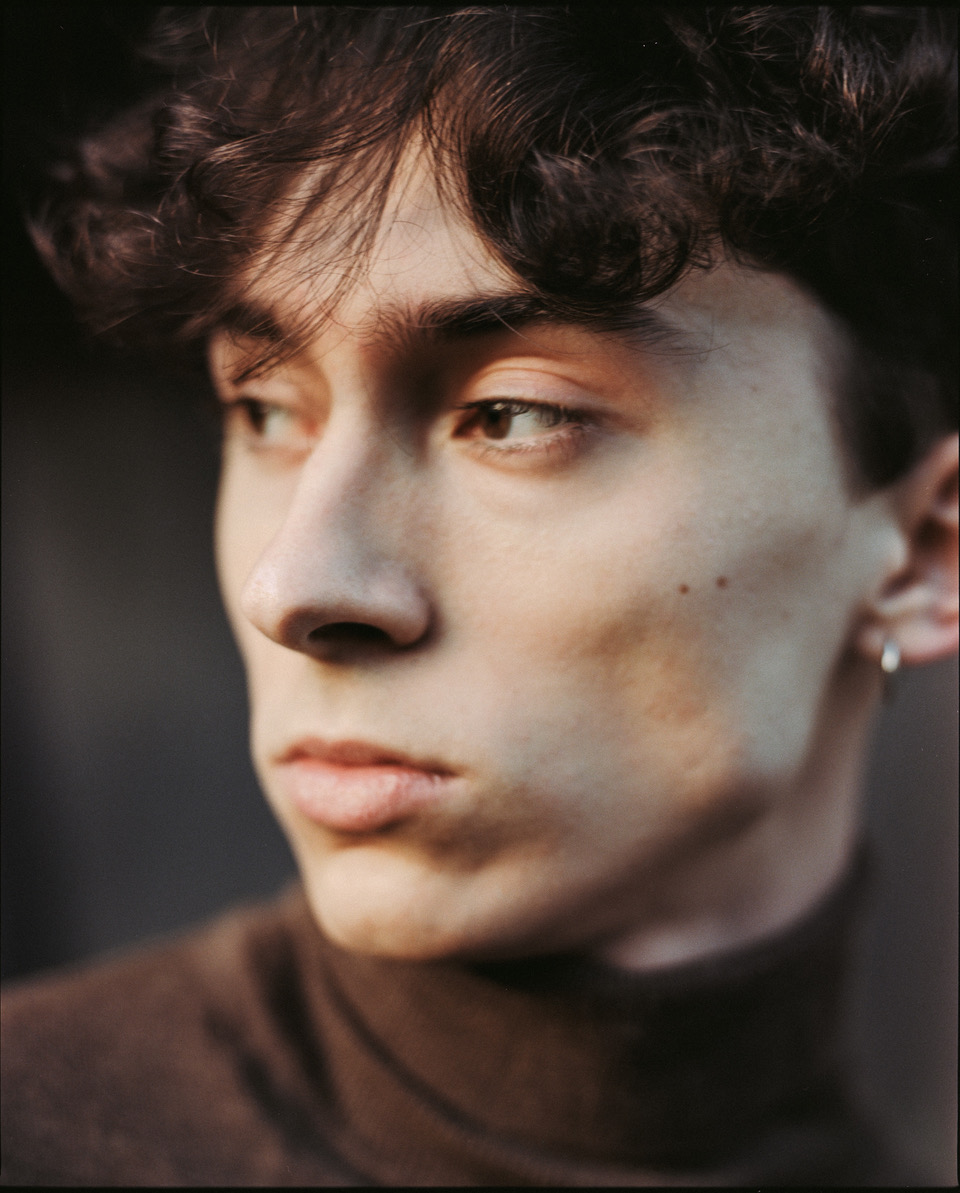︎ INTERVIEW: POLISH FILM PHOTOGRAPHER - MICHAŁ ZABOROWSKI

Film photographer MICHAŁ ZABOROWSKI was born in Ostrowiec Swietokrzyski, Poland, in 1989. He studied computer science and attended the Akademia Fotograffi, in Kraków. Michał considers photography as a creative counterweight to his job as a programmer. He is addicted to colour and loves keeping things simple. Michał shoots exclusively on film in various formats, specialising in fashion, portraiture and documentary photography.
Can you tell the readers briefly about your background?
I am Michał from Kraków, Poland. I have always liked taking pictures, but I initially started simply photographing my friends and family. I began photography school three years ago and everything grew from there. I have always loved analogue vibes, so since the beginning I have been shooting on film.
At what point did you develop an artistic interest?
Teachers in photography schools showed me how to read photos; why some of them are good and why others are not. Since then I started to analyse photographs of well-known photographers, as well as those that I personally admire. After some time my artistry just grew.

What is your earliest childhood memory?
I am not sure because it can be mixed up with what I've seen on video tapes. The earliest memory I have is probably spending time, carefree, with my friends in the neighbourhood. We used to play football and we had one special game that we played everyday called‚ ‘German’, but it’s hard to translate it directly.
What aspect of photography are you most intrigued by?
I like the technical aspects of photography. I am that guy who likes testing new cameras and lenses. I have serveral cameras on my shelf and people often ask me if I am using all of them, and why I have so many? It’s hard to say, but I just love them all. I like to change equipment because there isn’t one perfect camera and I have a lot of fun shooting each of them. I think this can be one of the reasons why I am shooting on film.

What is most rewarding about analogue photography in comparison to digital photography?
I think analogue photography has a much better feeling and the subsequet photographs are alive. They aren’t ideal images like you capture on digital cameras, which look plastic to me. Currently it is hard to replace optical plasticity from medium format cameras. In addition to that, film colours are just perfect. Many people try to simulate them in post-production but it is really hard and not always possible. It’s hard to explain, but for me, the same picture that’s taken on film and digital just has a different feeling.
How would you describe your work to people viewing it for the first time?
I really like shooting people and landscapes. My style is changing all the time but for sure there is one aspect that connects all of my work, and it is calmness and good colour connections, particularly monochrome colours. In my opinion, every photographer is smuggling part of their character and putting it into their work. So after viewing my work you should probably be abe to partially guess what I’m really like.

What distinguishes your work from other analogue photographers?
It is hard to judge especially as I am an author. From my side I believe that the relationship with the model is very important, and the photographer’s role is to smuggle the emotions which he wants to show. Everybody has their own tricks. I really like colour photography. I can say that I feel colours, and enjoy colour connections, and have a place for this in my notebook. I wish there were some books about colour connections, then for sure I would buy one. Maybe one day I will write my own...
What do you seek when taking a person’s portrait?
I know that it can be boring to say and everybody knows about it, but I think like everybody I’m looking for emotions; the emotions that suit me. It usually happens by itself. It’s hard to explain what it depends on in particular. I just take portraits and they seem to have a similar feeling - at least I think so.

Would you say your work is emotionally or aesthetically driven?
I think both. Good work demands both of them. I used to focus on aesthetics and I would spend a lot of time working on this, but now I spend more time focussing on emotion and storytelling. I already have some concepts that I want to explore very soon.
Which photograph and photographer are you most obsessed with currently?
I love the work of BARTEK WIECZOREK. He is always a source of my inspiration. I think that documentary photography in connection with portraiture is what I really like. But on the another hand, I continue to discover new photographers, and the work of TIMO KERBER is amazing. Sometimes I go back to the classics, but usually I prefer following photographers who are currently on top.

Can you name three people who have shaped the ethos of your work most?
It is hard to say, because many people have had an impact on my work. If I had to name only three people, first of all would be my wife AGNES, who always helps and advises me. Second would be RADEK PUJAN, an amazing photographer from Brussels. I met him at a photo event, and since then we became friends and he gave me a lot of important tips. If we're talking about the third person it is hard to point out only one, but many thanks go to FILIP KARPIŃSKI and MARCIN LECH.
What projects are you currently working on?
I have always wanted to do a photo series centred around one specific topic. I think that it is very important in a photographer's work. You can focus absolutely 100% on only one thing, which allows you to develop your skills and learn many new things. I’d never really found a topic which would absorb me totally. For some time I have been drawn to street fashion in which the models are ordinary people; they are just themselves. I have already made some portraits in this way and so, this year I am going to continue working on it. I was thinking about going on a trip around Poland and choosing some ordinary people to shoot with.

Do you derive inspiration from other areas of your life?
I think I derive inspiration from everywhere. Travelling inspires me a lot, as it gives me time to think about different aspects and break away from everyday life. It allows me to stay in harmony with nature, which is really hard and becomes very difficult if you live in a big city.
How does the city of Kraków influence your work?
The epicentre of photography in Poland is Warsaw, but Kraków is a very artistic place; it has a lot of positive energy. You can find a lot of events, where you can meet inspiring people. I can’t imagine that I could live anywhere else.

How do you direct your subjects?
Before I make photos I try to explain to the model what the session will look like and how I see it. If I don’t personally know the model I will say a couple of words about how I work and tell them to be natural. During the session I just give general directions such as, pointing their head to a different angle or changing their pose; very basics things. Mainly I am focused on lighting and framing. It is very helpful if I have a stylist or somebody who can look at some details which I do not always see.
In what ways are you curious to experiment with your practice?
I have experimented a lot in the past. I have tested many different films; even cinematic films such as; Kodak VISION3 and Fujifilm ETERNA. I have used many different types of cameras, lenses and focal lengths. After some time I found my favourite format, which is 6x7 and focal lengths of 75mm and 90mm, which I use for almost every photo shoot. I was not focusing on what was important, but I was experimenting by switching lenses and cameras. So after some time of experimenting, I chose to focus on a model and use my trusted combo, which is the Pentax 67II with Portra 160/400.

What are the best and worst aspects of being an artist?
A nice aspect of being an artist is surely that you can express yourself and get respect from other people who admire your work. You then receive a lot of positive energy. On the other hand, if something goes wrong several times in a row, it can be depressing, even to the point that you want to take a break. The best way you can deal with this is to make something new and hope that it will be as good as you expect. I think each artist counts on the opinion of their audience, which can be problematic at times; especially when you have a style but want to make something different.
Your photo series from Vietnam seems to reveal a pure essence of the people of Vietnam
and its culture. What did you aim to portray through this series?
I have always liked documentary photography, and this was actually one of my trips with my friend Radek who is also an analogue photographer. I just took my Hasselblad for this trip and we took photographs of real life. The goal was to show the real life of Vietnamese people, without lying. We were living with local people, so we had time to look at how they live. I really enjoyed my time spent in Vietnam, but I regret that I took the Hasselblad, which is not the best camera for documentary photography. I am planning my next trip (I still don’t know where to), but for sure when I go I will take my Mamiya 7 which is amazing for this kind of photography.

Which work are you most proud of until now?
Actually, I’ve only just started to accept my work. Before that I was constantly unsure if I was doing it right and I wasn’t able to achieve the results which I wanted when planning photoshoots. Half a year ago I had a breakthrough and I started approaching photoshoots in a slightly different way than previously. I started to accept my work, and more and more people started complimenting my photos, so I felt like this is it! I have a few photos that I really like, but I cannot say that I am proud of them. I think a photo series centred around one specific topic would be the thing that I would be proud of, so I hope I will make one soon.
How do you think art can be beneficial to society?
Art has always been beneficial to society and nothing has changed in that aspect. I think art allows people to jump into another space and feel something new; something different than in everyday life. I know that some people don’t understand art, but maybe that’s because they never wanted to?
What is the best advice you’ve ever been given?
The best advice I’ve ever been given was from MARCIN TWARDOWSKI, and he said; “If you want to shine in front of model - use flash!”

Interviewed & written by MATHEW PRICHARD
Photographs by MICHAŁ ZABOROWSKI
